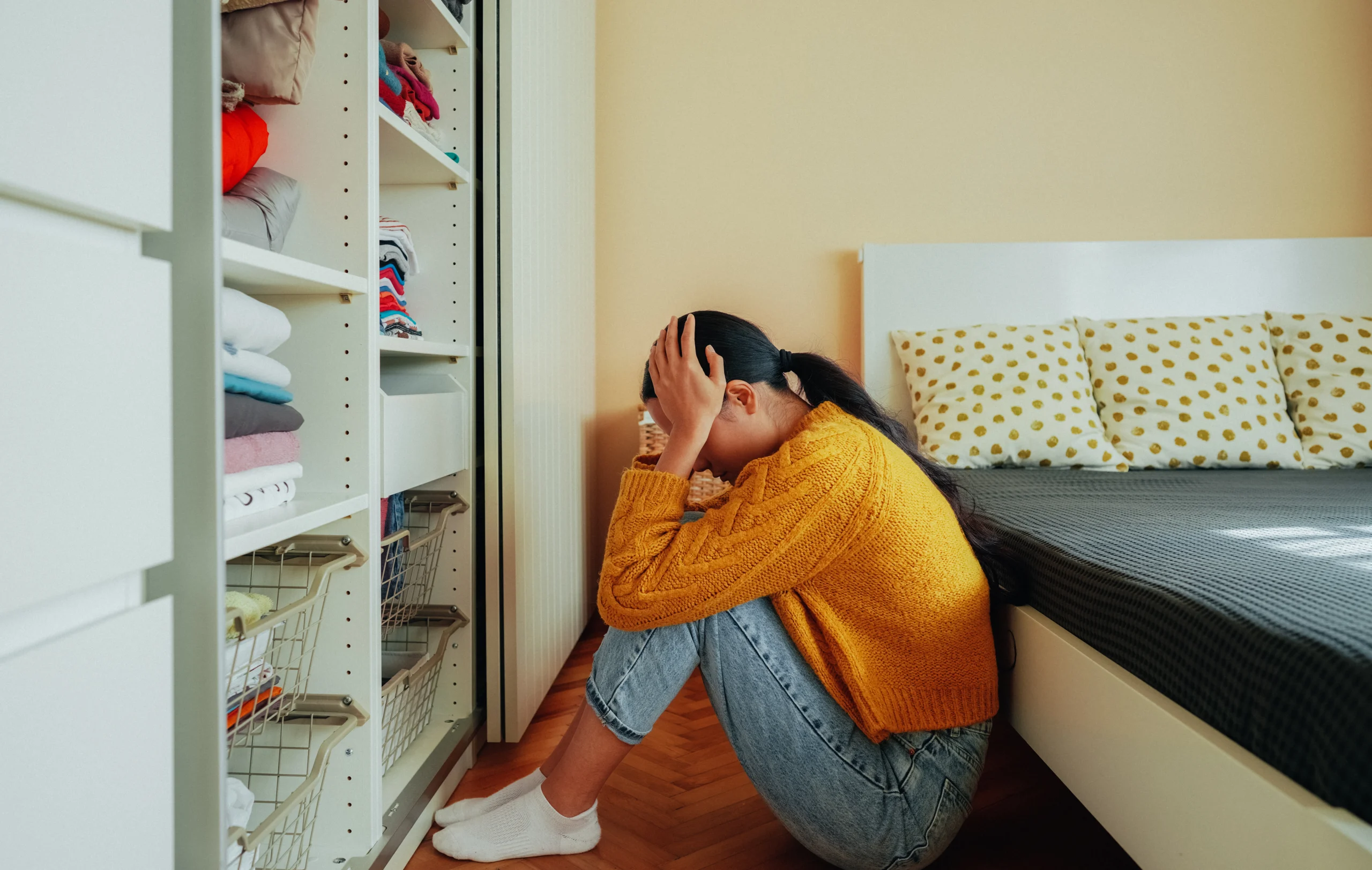Helping Your Teen Overcome Post-Traumatic Stress Disorder

Mood swings and other symptoms are often dismissed as typical behavior for teenagers, so it’s easy to miss signs of underlying mental health disorders in this group. In addition, teens may not want to share about the experiences that can lead to post-traumatic stress disorder (PTSD).
Like adult PTSD, PTSD in teens is characterized by extreme fear and adverse reactions triggered by a traumatic event. In this article, we’ll explain the clinical diagnosis, symptoms of PTSD in teens and what kind of treatment to look for.
Defining PTSD
While it’s normal for people of all ages to experience adverse reactions after a traumatic event, when the symptoms don’t begin to subside after weeks or months, it’s possible that they’ve developed PTSD.
The criteria of PTSD as a mental health condition is outlined in the Diagnostic and Statistical Manual of Mental Disorders. This diagnosis is for people over the age of six years who have undergone or witnessed a terrifying event, like sexual assault, violence, war or car accident.
According to the National Institute of Mental Health, a PTSD diagnosis is only appropriate if an individual has a number of symptoms from various categories that last for more than one month. While these symptoms may be easier to spot in adults who can communicate more clearly and have higher self-awareness, they can be observed in teens as well when you know what to look for.
Symptoms of PTSD in Teens
According to the Mayo Clinic, there are four categories of PTSD symptoms. These are intrusive memories, avoidance, negative changes in thinking and mood and changes in emotional and physical reactions.
Here are some examples of how these symptoms might manifest in teens and children:
- Reliving the traumatic event
- Nightmares and/or trouble sleeping
- Wetting the bed
- Appearing to zone out when reliving the trauma
- Reenacting the trauma through play
- Avoiding things that remind them of the trauma
- Refusing to talk about the event in therapy or to trusted adults
- Denying that the event happened
- Having a negative view of people and the world
- Difficulty remembering important facts or details
- Struggling to concentrate or pay attention in school
- Dropping out of extracurricular activities
- Not wanting to spend time with family or friends
- Difficulty feeling happy even in enjoyable situations
- Being on-edge
- Acting helpless
- Feelings of sadness, anger, frustration or shame
- Fearing being away from caregivers or people the teen considers safe
- Engaging in self-mutilation
Many of these and other symptoms of PTSD in teens may be manifestations of other mental or medical conditions, so if you suspect your teen is struggling with PTSD, it’s important to get a professional opinion.
Possible Causes of PTSD in Teens
While teens are susceptible to developing PTSD from any traumatic event, there are some events that tend to be unique to children and adolescents. These include:
- Bullying
- Adverse experiences with adoption and foster care
- Separation from parents
- Kidnapping
- Refugee experiences
- Observing combat or living in or near a war zone
- Sexual abuse
- Domestic violence
- Neglect
- The death of a loved one
Not all traumatic experiences will cause PTSD and the same event may produce PTSD in one teen but not another. It’s important to remember that this condition is never a defect of character, and all teens deserve to feel safe.
Treatment for PTSD in Teens
Most PTSD treatment is focused on adults, so it can be hard to know what your teen needs or how to find the correct approach. Thankfully, you can find treatment for PTSD for teens specifically. It’s important to get professional care because PTSD won’t subside on its own.
You may worry that your teen will suffer more from talking about the trauma in psychotherapy, but healing comes through a process of lowering fear about the trauma, which can only happen through controlled exposure to the thoughts and worries associated with it.
This treatment is called trauma-focused cognitive behavioral therapy (CBT). CBT can occur in the inpatient or outpatient treatment setting. Your teen may also participate in prolonged exposure therapy, cognitive processing therapy, play therapy, stress inoculation therapy and other holistic therapeutic modalities.
If you have a teen who struggles with PTSD or know a young person who could use intervention following a traumatic event, reach out to High Focus Centers PA. Programs designed for teens are offered in a hybrid approach with online and in-person options for your convenience.
Get your teen the treatment he or she deserves. Call High Focus Centers PA today.








